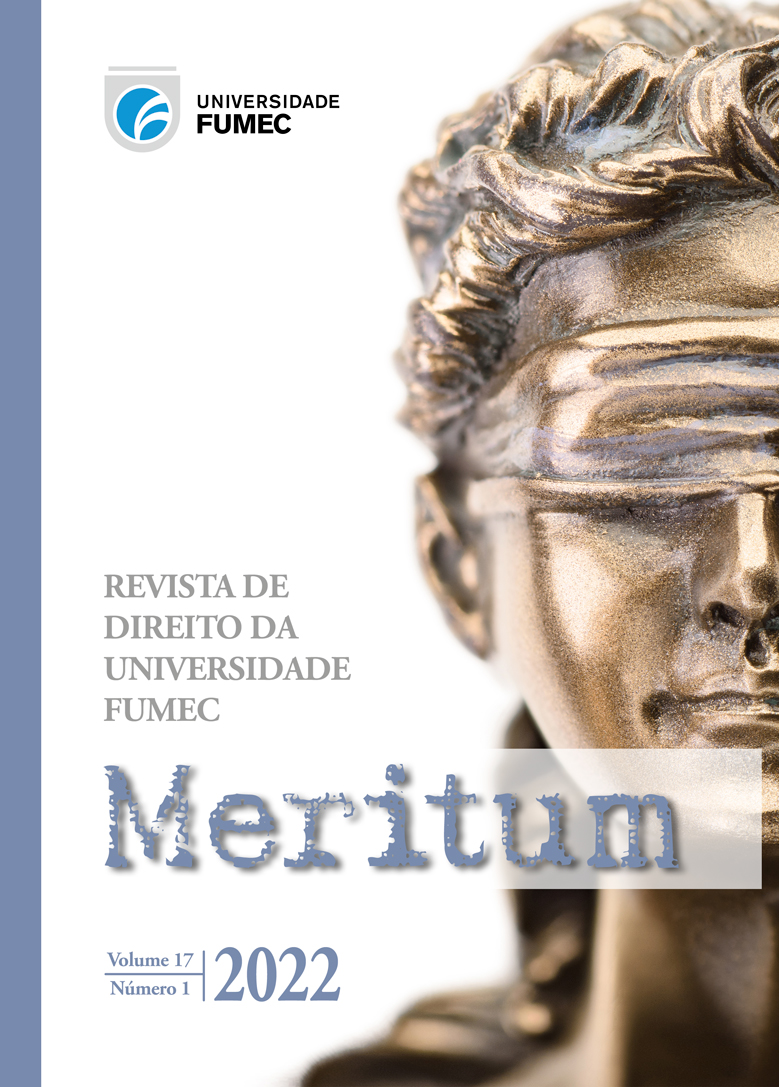CONVENTION AND SHOPPING CENTER RULES OR REGULATIONS: MATERIAL AND REGISTRY ASPECTS AND THEIR PROCEDURAL REFLECTIONS ON INDIVIDUAL AND COLLECTIVE DEMANDS
MATERIAL AND REGISTRY ASPECTS AND THEIR PROCEDURAL REFLECTIONS ON INDIVIDUAL AND COLLECTIVE DEMANDS
DOI:
https://doi.org/10.46560/meritum.v17i1.8693Abstract
This article studies Shopping Center, addressing its historical evolution, concept, types, convention, statute or regulation and registration of these normative instruments (convention and statute) before Real Estate Registry Offices, for erga omnes advertising purposes. Shopping Center, as a legal figure, does not have specific treatment in Brazilian Law, so that, in its conformation, several legal institutes are used, by analogy, such as: the lease agreement; the building condominium, with its convention and regiment; associative or corporate law. The study also discusses the effects of the registration publicity of the convention and the Shopping Center regulations, as well as limits and rules for its alteration. It addresses the issue of privatization of common areas and explains the convention and regulation or regulation of the Shopping Center, its interrelationship with the Real Estate Registry and its procedural consequences in individual and collective demands, including the application of the Code of Consumer in legal relationships in which there is real estate development. The deductive method was used and as a research technique, the bibliographical, which is developed from primary and secondary sources, that is, from sparse norms, jurisprudence and available literature.
Downloads
Published
Issue
Section
License
Autores que publicam nesta revista concordam com os seguintes termos:
- Autores mantém os direitos autorais e concedem à revista o direito de primeira publicação, com o trabalho simultaneamente licenciado sob a Licença Creative Commons Attribution que permite o compartilhamento do trabalho com reconhecimento da autoria e publicação inicial nesta revista;
- Autores têm autorização para assumir contratos adicionais separadamente, para distribuição não-exclusiva da versão do trabalho publicada nesta revista (ex.: publicar em repositório institucional ou como capítulo de livro), com reconhecimento de autoria e publicação inicial nesta revista;
- Autores têm permissão e são estimulados a publicar e distribuir seu trabalho online (ex.: em repositórios institucionais ou na sua página pessoal) a qualquer ponto antes ou durante o processo editorial, já que isso pode gerar alterações produtivas, bem como aumentar o impacto e a citação do trabalho publicado (Veja O Efeito do Acesso Livre).






